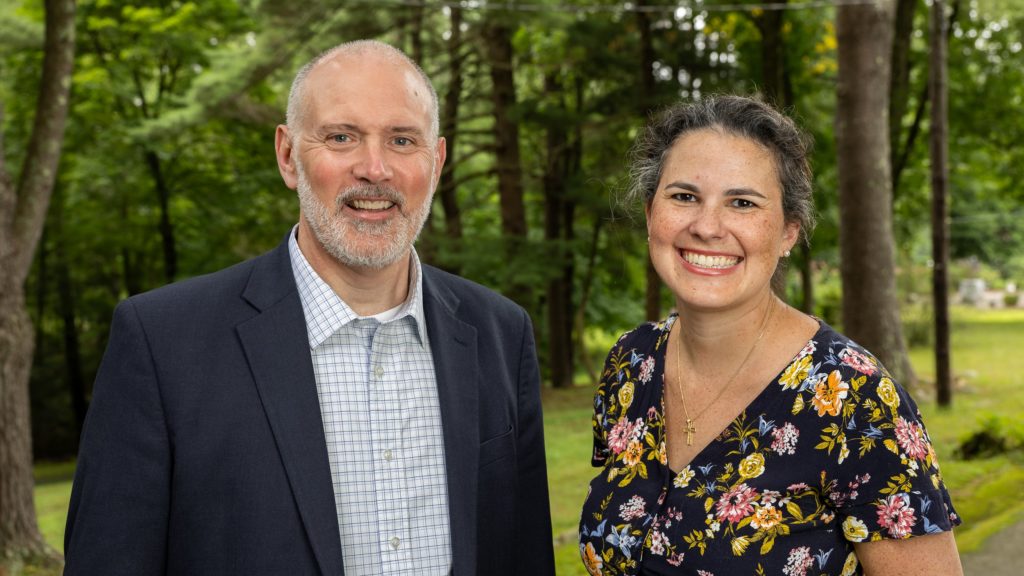Dissatisfaction with the two leading American presidential candidates — and their two respective political parties — is nothing new.
Pew Research Center recently reported that about half of eligible voters would rather not vote for either candidate, and those who are voting will do so against the candidate they loathe, rather than for the candidate they support.
Since 2010, Gallup has found that only about 1 in 4 Americans identify as Republican and 1 in 4 as Democrat, while 2 in 4 Americans identify as politically independent. But the levels of dissatisfaction with either side is remarkable: Rates of independent identification are tied for the all-time highs in the history of the Gallup poll.
Pew’s finding last month that about half of Americans would replace both Biden and Trump if they could.
This has been borne out by the presidential candidate polls, and is notable due to the strength of third party candidates, particularly Robert F. Kennedy Jr.
In the battleground state of Wisconsin, for instance, Biden is polling 38%, Trump 38%, Kennedy 9%, and “other” a substantial 15%. Similar numbers are found in battleground states like Michigan, Arizona, and Pennsylvania.
Overall, Kennedy is polling at just over 10% nationally, more than enough to be a major factor in the election. Indeed, both major presidential candidates seem annoyed by the numbers third party candidates are achieving. That is probably one reason they both recently agreed to scrap the Committee on Presidential Debates in favor of an agreement with CNN that will likely keep third party candidates off the debate stage.
But we shouldn’t let the cynical and manipulative political powers that be cut us off from considering third party candidates. The entrenched two-party system has been bad for the country — and even worse for Catholics — for some time now.
It has pushed millions to the negative and toxic place (with the help of social media, which also rewards negativity and toxicity) of voting against someone rather than voting for someone. It has poisoned our ideas about politics, turning it into a kind of Machiavellian game of 4-D chess about how to maneuver to defeat the “bad guy.”
At times, it has misled Catholics into thinking that the Democratic party or Republican party — or candidates like Donald Trump or Joe Biden — represent the truths of the Catholic faith.
Sadly, the right vs. left secular political fight-to-the death has been imported and even absorbed into certain places in the Church — reflected by the fact that bishops, theologians, and even parishes are often classified as “conservative” or “liberal.”
But Catholicism, which is ever ancient, ever new — the product of both the Holy Spirit's inspiration of centuries of tradition coming out of the first-century Middle East — cannot be made to fit into the dominant modes of secular U.S. politics.
Yet the temptation toward political idolatry pushes many Catholics to see their brothers and sisters in Christ as political enemies on “the other side” to be defeated — rather than fellow Temples of the Holy Spirit to be loved as siblings.
In this column and in other places, I’ve tried to self-consciously push back against this kind of idolatry. Through careful and consistent application of the vision of Christ’s Church, we can move in political spaces in ways that are faithful and not hateful. Nonviolent and not vindictive. Healing and not destructive.
Part of that call is to refuse to play the power game of our secular politics. Refuse to choose between two unacceptable options. In the past that might have been difficult, but this election is a real opportunity for Catholics to vote their conscience. Both major candidates are terrible. Both parties are corrupt and incoherent. We don’t need to choose between them.
Identify as a pro-life Catholic? Feeling the pressure to pick the lesser of two evils here? This has been one of the reasons Catholics have dutifully played their role in the Republican vs. Democrat idolatrous duopoly. And, truth be told, there may have been times in the past where it could have made a certain amount of sense.
But Roe is gone. And, as Lila Rose of Live Action has pointed out, Trump’s new feckless position on abortion is not pro-life. (Nor, of course, are his positions on torture, the death penalty, hooking up with porn stars while one’s wife is pregnant, and so on.)
For his part, Biden — a Roman Catholic — has been prioritizing abortion in his campaign, saying that it should be a constitutional right. His vice president became the first person in that office to visit an abortion clinic. Neither of the two major candidates are pro-life.
Indeed, the only presidential candidate who is genuinely pro-life is Peter Sonski of the young and fast-growing American Solidarity Party (ASP). If you haven’t yet checked out that party, and especially if you are fed up with the options you have with Biden and Trump, I encourage you to give them a first look.
But even if the ASP isn’t for you, we should refuse to stay trapped in a self-perpetuating, antagonistic two-party system that is undermining so much that is good about this country and the Church. Staying within the bounds of that system is a choice; U.S. Catholics can and should make different and better choices.
Happily, this election is setting up to be the best one in a long time for doing precisely this.

